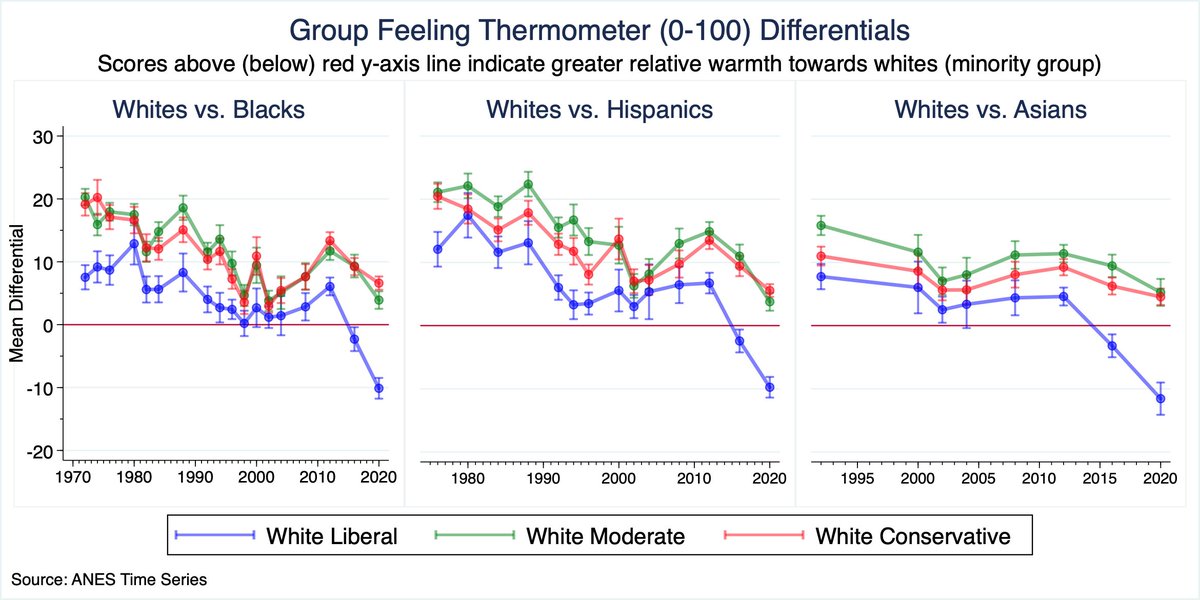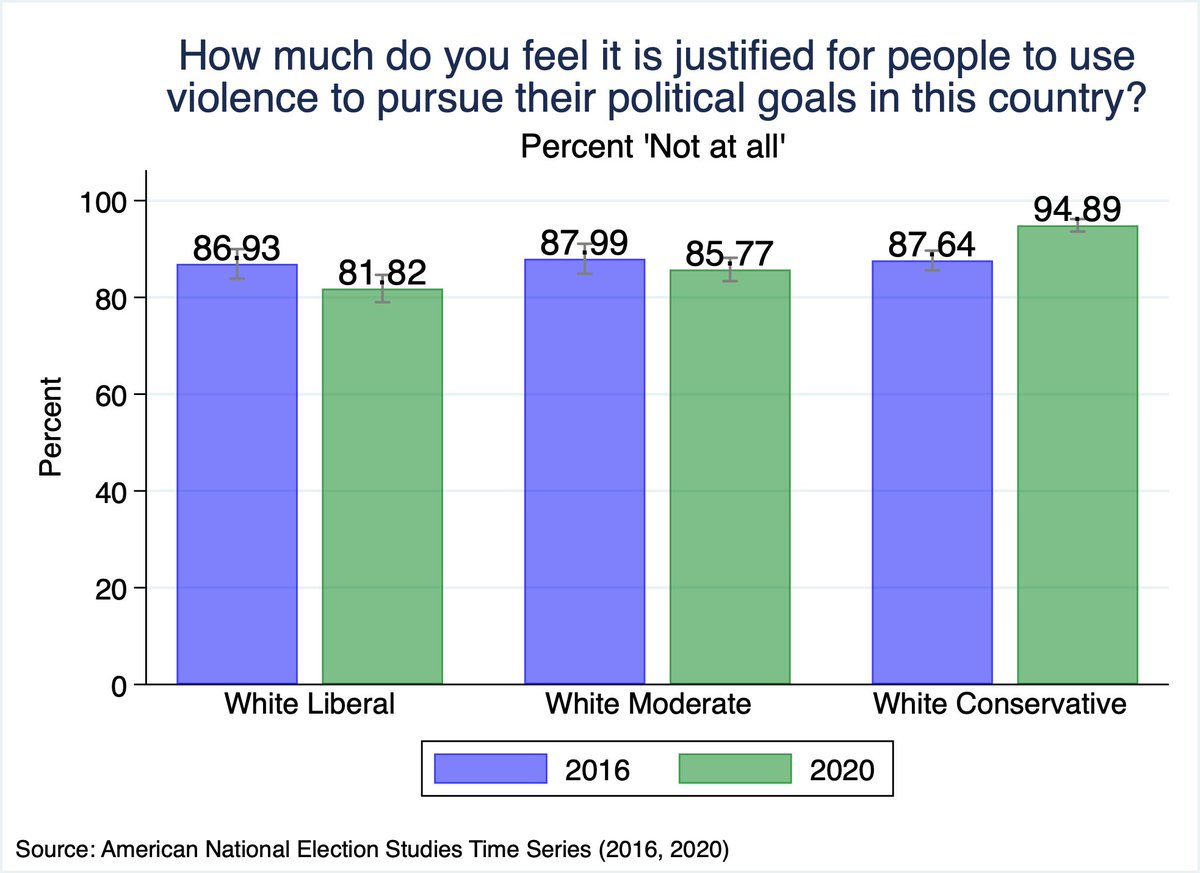
1/2 I look forward to reading this book.
Glanced at the prologue and it jells with a theme I observed in my qualitative analysis of open-response entries: by and large, white racial resentment ≠ 'I hate black people'. It's more like...

https://twitter.com/MattGrossmann/status/1448792314785185802?s=20
Glanced at the prologue and it jells with a theme I observed in my qualitative analysis of open-response entries: by and large, white racial resentment ≠ 'I hate black people'. It's more like...


2/2 ..'I'm tired of people lumping all whites into a single group and blaming me--and expecting me to pay--for the problems of others'
The proponents of the RR scale, though, think whites *are* responsible for the disadvantages of others. Hence, they interpret denials of..
The proponents of the RR scale, though, think whites *are* responsible for the disadvantages of others. Hence, they interpret denials of..
3/3 ...responsibility as anti-black animus.
4/4 To give a recent example, in this article, @AshleyJardina and colleagues treat the 'racial resentment' scale as a measure of 'white racial hostility' onlinelibrary.wiley.com/doi/abs/10.111… 

• • •
Missing some Tweet in this thread? You can try to
force a refresh













